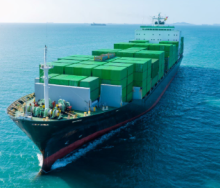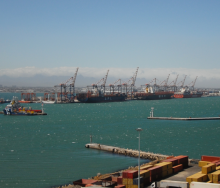It is trite that in the freighting industry the largest portion of any overdue amount relates to the actual payment of disbursements to third party service providers/sub-contractors and particularly to SARS for customs duties, VAT and demurrage charges levied from time to time.
That being the case, it again to my mind begs the question as to whether this aspect should be addressed by substantially strengthening the impact of the standard trading terms by considering certain amendments.
A major part of the outstanding amounts owing to freight companies relate to actual disbursements pertaining to VAT and duties paid by the freight company for and on behalf of a customer, thereby almost acting as a “bank” for such customers. This practice is to my mind far too generous, considering the present tough economic times. It is already onerous enough to expose a freight company to extend credit facilities, especially in circumstances where their exposure to actual further disbursements (because of custom duties and VAT charges) could substantially be increased, in most cases, because of circumstances totally beyond their control.
The freight industry has in recent times moved from giving a quotation to rather framing a quotation as an estimate, thereby clearly indicating that the estimated amounts in the “quotation/estimate” may well be subject to change. The practical problem is that in many cases, customers have, despite the relatively one-sided standard trading terms and conditions utilized by many freight companies, still raised so called “bona fide disputes” on the basis that the freight company did not act in accordance with the initial instructions given by the customer and/or that the freight company was negligent when carrying out the instructions given by the customer.
In many instances, such so-called negligence is attributable to the failure of the customer to provide the relevant supporting documentation to facilitate and expedite the clearing process once the goods have landed or because of other delays (sometimes resulting in substantial demurrage charges being levied), beyond the control of the freight company.
- Read the full article in our "Knowledge Library."













